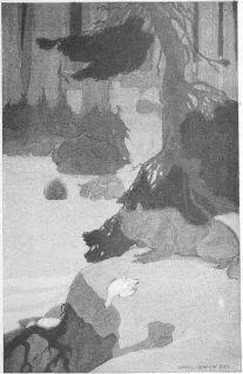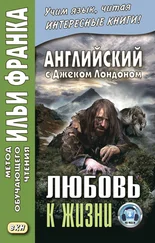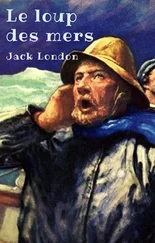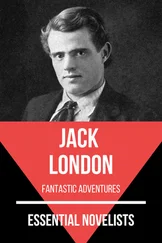Jack London - Love of Life
Здесь есть возможность читать онлайн «Jack London - Love of Life» весь текст электронной книги совершенно бесплатно (целиком полную версию без сокращений). В некоторых случаях можно слушать аудио, скачать через торрент в формате fb2 и присутствует краткое содержание. Жанр: Классическая проза, на английском языке. Описание произведения, (предисловие) а так же отзывы посетителей доступны на портале библиотеки ЛибКат.
- Название:Love of Life
- Автор:
- Жанр:
- Год:неизвестен
- ISBN:нет данных
- Рейтинг книги:4 / 5. Голосов: 1
-
Избранное:Добавить в избранное
- Отзывы:
-
Ваша оценка:
- 80
- 1
- 2
- 3
- 4
- 5
Love of Life: краткое содержание, описание и аннотация
Предлагаем к чтению аннотацию, описание, краткое содержание или предисловие (зависит от того, что написал сам автор книги «Love of Life»). Если вы не нашли необходимую информацию о книге — напишите в комментариях, мы постараемся отыскать её.
Love of Life — читать онлайн бесплатно полную книгу (весь текст) целиком
Ниже представлен текст книги, разбитый по страницам. Система сохранения места последней прочитанной страницы, позволяет с удобством читать онлайн бесплатно книгу «Love of Life», без необходимости каждый раз заново искать на чём Вы остановились. Поставьте закладку, и сможете в любой момент перейти на страницу, на которой закончили чтение.
Интервал:
Закладка:
On the other hand, there are those that make toward survival, the fit individuals who escape from the rule of the obvious and the expected and adjust their lives to no matter what strange grooves they may stray into, or into which they may be forced. Such an individual was Edith Whittlesey. She was born in a rural district of England, where life proceeds by rule of thumb and the unexpected is so very unexpected that when it happens it is looked upon as an immorality. She went into service early, and while yet a young woman, by rule-of-thumb progression, she became a lady’s maid.
The effect of civilization is to impose human law upon environment until it becomes machine-like in its regularity. The objectionable is eliminated, the inevitable is foreseen. One is not even made wet by the rain nor cold by the frost; while death, instead of stalking about grewsome and accidental, becomes a prearranged pageant, moving along a well-oiled groove to the family vault, where the hinges are kept from rusting and the dust from the air is swept continually away.
Such was the environment of Edith Whittlesey. Nothing happened. It could scarcely be called a happening, when, at the age of twenty-five, she accompanied her mistress on a bit of travel to the United States. The groove merely changed its direction. It was still the same groove and well oiled. It was a groove that bridged the Atlantic with uneventfulness, so that the ship was not a ship in the midst of the sea, but a capacious, many-corridored hotel that moved swiftly and placidly, crushing the waves into submission with its colossal bulk until the sea was a mill-pond, monotonous with quietude. And at the other side the groove continued on over the land-a well-disposed, respectable groove that supplied hotels at every stopping-place, and hotels on wheels between the stopping-places.
In Chicago, while her mistress saw one side of social life, Edith Whittlesey saw another side; and when she left her lady’s service and became Edith Nelson, she betrayed, perhaps faintly, her ability to grapple with the unexpected and to master it. Hans Nelson, immigrant, Swede by birth and carpenter by occupation, had in him that Teutonic unrest that drives the race ever westward on its great adventure. He was a large-muscled, stolid sort of a man, in whom little imagination was coupled with immense initiative, and who possessed, withal, loyalty and affection as sturdy as his own strength.
“When I have worked hard and saved me some money, I will go to Colorado,” he had told Edith on the day after their wedding. A year later they were in Colorado, where Hans Nelson saw his first mining and caught the mining-fever himself. His prospecting led him through the Dakotas, Idaho, and eastern Oregon, and on into the mountains of British Columbia. In camp and on trail, Edith Nelson was always with him, sharing his luck, his hardship, and his toil. The short step of the house-reared woman she exchanged for the long stride of the mountaineer. She learned to look upon danger clear-eyed and with understanding, losing forever that panic fear which is bred of ignorance and which afflicts the city-reared, making them as silly as silly horses, so that they await fate in frozen horror instead of grappling with it, or stampede in blind self-destroying terror which clutters the way with their crushed carcasses.
Edith Nelson met the unexpected at every turn of the trail, and she trained her vision so that she saw in the landscape, not the obvious, but the concealed. She, who had never cooked in her life, learned to make bread without the mediation of hops, yeast, or baking-powder, and to bake bread, top and bottom, in a frying-pan before an open fire. And when the last cup of flour was gone and the last rind of bacon, she was able to rise to the occasion, and of moccasins and the softer-tanned bits of leather in the outfit to make a grub-stake substitute that somehow held a man’s soul in his body and enabled him to stagger on. She learned to pack a horse as well as a man,-a task to break the heart and the pride of any city-dweller, and she knew how to throw the hitch best suited for any particular kind of pack. Also, she could build a fire of wet wood in a downpour of rain and not lose her temper. In short, in all its guises she mastered the unexpected. But the Great Unexpected was yet to come into her life and put its test upon her.
The gold-seeking tide was flooding northward into Alaska, and it was inevitable that Hans Nelson and his wife should he caught up by the stream and swept toward the Klondike. The fall of 1897 found them at Dyea, but without the money to carry an outfit across Chilcoot Pass and float it down to Dawson. So Hans Nelson worked at his trade that winter and helped rear the mushroom outfitting-town of Skaguay.
He was on the edge of things, and throughout the winter he heard all Alaska calling to him. Latuya Bay called loudest, so that the summer of 1898 found him and his wife threading the mazes of the broken coast-line in seventy-foot Siwash canoes. With them were Indians, also three other men. The Indians landed them and their supplies in a lonely bight of land a hundred miles or so beyond Latuya Bay, and returned to Skaguay; but the three other men remained, for they were members of the organized party. Each had put an equal share of capital into the outfitting, and the profits were to be divided equally. In that Edith Nelson undertook to cook for the outfit, a man’s share was to be her portion.
First, spruce trees were cut down and a three-room cabin constructed. To keep this cabin was Edith Nelson’s task. The task of the men was to search for gold, which they did; and to find gold, which they likewise did. It was not a startling find, merely a low-pay placer where long hours of severe toil earned each man between fifteen and twenty dollars a day. The brief Alaskan summer protracted itself beyond its usual length, and they took advantage of the opportunity, delaying their return to Skaguay to the last moment. And then it was too late. Arrangements had been made to accompany the several dozen local Indians on their fall trading trip down the coast. The Siwashes had waited on the white people until the eleventh hour, and then departed. There was no course left the party but to wait for chance transportation. In the meantime the claim was cleaned up and firewood stocked in.
The Indian summer had dreamed on and on, and then, suddenly, with the sharpness of bugles, winter came. It came in a single night, and the miners awoke to howling wind, driving snow, and freezing water. Storm followed storm, and between the storms there was the silence, broken only by the boom of the surf on the desolate shore, where the salt spray rimmed the beach with frozen white.
All went well in the cabin. Their gold-dust had weighed up something like eight thousand dollars, and they could not but be contented. The men made snowshoes, hunted fresh meat for the larder, and in the long evenings played endless games of whist and pedro. Now that the mining had ceased, Edith Nelson turned over the fire-building and the dish-washing to the men, while she darned their socks and mended their clothes.
There was no grumbling, no bickering, nor petty quarrelling in the little cabin, and they often congratulated one another on the general happiness of the party. Hans Nelson was stolid and easy-going, while Edith had long before won his unbounded admiration by her capacity for getting on with people. Harkey, a long, lank Texan, was unusually friendly for one with a saturnine disposition, and, as long as his theory that gold grew was not challenged, was quite companionable. The fourth member of the party, Michael Dennin, contributed his Irish wit to the gayety of the cabin. He was a large, powerful man, prone to sudden rushes of anger over little things, and of unfailing good-humor under the stress and strain of big things. The fifth and last member, Dutchy, was the willing butt of the party. He even went out of his way to raise a laugh at his own expense in order to keep things cheerful. His deliberate aim in life seemed to be that of a maker of laughter. No serious quarrel had ever vexed the serenity of the party; and, now that each had sixteen hundred dollars to show for a short summer’s work, there reigned the well-fed, contented spirit of prosperity.
Читать дальшеИнтервал:
Закладка:
Похожие книги на «Love of Life»
Представляем Вашему вниманию похожие книги на «Love of Life» списком для выбора. Мы отобрали схожую по названию и смыслу литературу в надежде предоставить читателям больше вариантов отыскать новые, интересные, ещё непрочитанные произведения.
Обсуждение, отзывы о книге «Love of Life» и просто собственные мнения читателей. Оставьте ваши комментарии, напишите, что Вы думаете о произведении, его смысле или главных героях. Укажите что конкретно понравилось, а что нет, и почему Вы так считаете.












